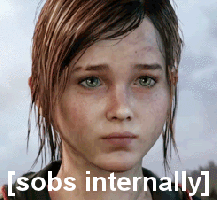Quote:
Originally posted by Wonderlust

Goddamn mess, so you're telling me people speak both mixed in their sentences? how do you tell the difference?
 |
Well you don't need to worry about Kanji at all for speaking. It's only relevant in reading and writing
Hiragana and Kanji are interchangeable. For example you can write ちょうしょく or 朝食. Both of them mean breakfast and both of them are pronounced the same way (so if someone said to you chōshoku you should know they mean breakfast)
And yes you can TECHNICALLY write it both ways but you will never see an adult write it in hiragana because it could mean they are uneducated. Also if you have a longer sentence it's hard to see where the sentences begins and ends. I'll write an example
English: What do you want for breakfast this morning?
Romaji: Kesa, chōshoku ha nani o tabemasuka?
Hiragana: けさ、ちょうしょくはなにをたべますか。
Kanji: 今朝、朝食は何を食べますか。
It's much easier reading that last sentence because you know which are words and you can quickly read them without hesitation. In the Hiragana sentences unless you were sure what the sentence said you wouldn't know where to start or end. For Kanji you start at separate characters so it's easy